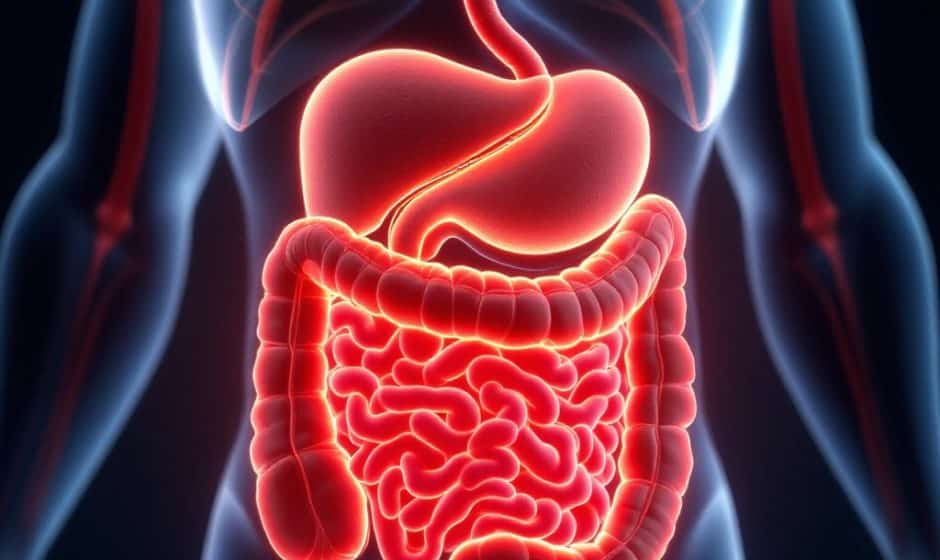You ever feel that odd twinge in your stomach and think it’s just run-of-the-mill indigestion or maybe something you snagged at lunch not quite agreeing with you? Yeah, me too. But what if I told you there’s this small but mighty organ quietly doing its job, unless it decides to throw a gallstone at our plans? Enter the gallbladder—your underappreciated digestive sidekick.
When folks mention aintenance. Overlo, most of us probably think of metabolic balance and weight maintenance. Overlooked, though, is how hormone regulation vibes so intricately with digestion, especially when gallbladder help is concerned. The link may be quiet, but boy, does it matter!
Understanding the Gallbladder and Its Role
First off, let’s chat about this small, pear-shaped organ nestled up beneath the liver. The gallbladder’s job is straightforward—store and concentrate bile produced by the liver. Bile is your digestive system’s secret sauce, breaking down fats and making them easier to digest. So next time you’re relishing a buttery croissant, know that the gallbladder is working diligently behind the scenes to make that moment of joy possible.
Here’s the kicker: gallbladder health isn’t just about avoiding uncomfortable dinner dates like gallstones or inflammation. It’s crucial for optimizing hormone regulation, particularly relating to fat metabolism.
Key Functions of the Gallbladder
- Bile Storage: Keeps bile ready for action, releasing it right when that fatty feast hits your stomach.
- Aiding Digestion: It makes fatty foods more manageable by emulsifying them, ensuring nutrients are absorbed efficiently.
- Supporting Hormone Balance: Speeds up the digestive process, which can help maintain normal levels of hormones like insulin and cortisol.
When the gallbladder is in tip-top shape, it’s easier on everything else—including the hormone regulation that sings the tune your digestion and energy dance to.
Recognizing Gallbladder Issues

Imagine this; you’re enjoying a greasy plate of something delectable. Then stomach pain strikes. Not the typical, I’m-so-full kind. It’s sharp. In your shoulder. Wait, what? Classic signs of gallbladder trouble often aren’t where you’d expect them.
Common Symptoms of Gallbladder Problems
- Sharp abdominal pain: Often surfacing after a fatty meal.
- Nausea or vomiting: Not limited to food poisoning—could be the gallbladder reacting.
- Indigestion: Beer belly that isn’t just from beer.
- Back or shoulder pain: Unexpected, right? Pain referring to distant areas is a sneaky trick gallbladder issues can play.
Understanding these symptoms is crucial because hormone regulation gets disrupted, too, when these problems occur. Trust me, your body will be quick to let you know when something’s off.
Nurturing Gallbladder Health
Let’s flip the script. Instead of scrambling to fix gallbladder issues, how about we pamper our digestive buddy with some TLC? Even if you’ve lived blissfully ignorant of your gallbladder’s workings, it’s never too late to start caring. Here’s the scoop on keeping things flowing smoothly.
Dietary Considerations
- Fiber, Your Friend: Fiber plays the unsung hero in maintaining a happy gallbladder. Foods like fruits, vegetables, beans, and whole grains not only assist in hormone regulation but also prevent gallstone formation by keeping your digestive system humming.
- Healthy Fats: Ditch the trans fats and go for the good stuff. Avocados, nuts, olive oil—they’re less likely to incite a gallbladder revolt while aiding proper hormone balance.
- Moderation is Key: It’s all about balance, folks! A high-fat diet will excessively tap the gallbladder for bile, while a low-fat diet might not stimulate it enough to function properly. Find the sweet spot.
Lifestyle Adjustments

- Regular Exercise: Moving your body strengthens not just muscles but also digestion. Even a simple walk can stimulate hormone regulation and keep the gallbladder active.
- Stay Hydrated: Water can aid in the digestion process, optimizing bile production and preventing concentration that might lead to stones.
- Mindful Eating: Eating too fast makes it tough for your body to signal hormone-release efficiently, straining the gallbladder. Slow it down a notch. Savor your meal.
Avoiding Triggers
There’s nothing more relatable than falling prey to foods that upset your gut. It’s like gravity—they’re tough to resist. But knowing your triggers can turn things around.
- Fried or greasy foods: Delicious, yes, but your gallbladder may not thank you, especially if consumed in large quantities.
- Processed foods high in carbs: They can spike insulin levels—a hormone concerned with sugar regulation—potentially straining digestion.
- Spicy foods: Not everyone’s bane, but they can irritate sensitive digestive systems.
Hormone Regulation and Gallbladder: The Connection
You’ve got your head around what fuels a healthy gallbladder. But why all the focus on hormone regulation? Let’s double back.
Digestion isn’t a solo act. It’s an ensemble performance where hormones play leading roles. A stable hormone environment allows digestion—especially fat processing, a gallbladder forte—to be more efficient. When things go haywire, like sluggish gallbladder action, hormone signals can get muddled.

Consider insulin—a vital player in regulating blood sugar levels and a hormone deeply entwined with digestion. Bile malfunction can influence how the body handles fats, which ties in with insulin signals. This can ripple system-wide, affecting overall hormone stability.
Practical Steps to Support Your Gallbladder Now
So what’s next? Let’s run through some tangible steps you can start today to keep that gallbladder in prime condition.
- Gradual Fat Reduction: If fatty foods are your kryptonite, start tailoring your plate gradually. Little tweaks over time are easier on your system—no need to overhaul abruptly!
- Regular Meals: Skipping meals can lead to concentrated bile, upping the chance for gallstones. Aim for balanced meals spread throughout the day.
- Consider Magnesium: This mineral keeps muscles—including the muscular gallbladder—relaxed, aiding in smoother function. Leafy greens and nuts are dependable sources.
- Limit Refined Sugars: Overconsumption can influence insulin spikes, potentially leading to gallbladder inflammation. Stick to natural sugars where you can.
- 5. **Stay Lit-erally Light After 6 PM: Heavy dinners can strain your gallbladder overnight, throwing digestion and hormone cycles off track. Trust me, your mornings will thank you!
Summing It All Up
It’s all interconnected, isn’t it? The gallbladder may not often get the spotlight, but it’ll certainly let you know if ignored. The ties between hormone regulation and gallbladder health underscore the larger digestive theme that our everyday habits—what we snack on, when we eat, and how we move—impact our hormonal wellbeing.
Your gallbladder is a backstage champ, making sure every meal’s performance is unforgettable in the best AND the worst ways. Nurturing this relationship results not just in effective digestion but smoother, balanced living. Small changes harness big benefits, so give yourself a pat for diving into this guide. You’re doing the gallbladder (and your entire body!) a favor. Cheers to health!
Frequently Asked Questions
What causes a hormonal imbalance?
A hormonal imbalance can be caused by natural changes or stages in your life, including puberty, pregnancy, perimenopause, and menopause. Other causes include partial or full hysterectomy, tumors, adenomas, and autoimmune diseases that affect the endocrine glands[3][5].
How does hormone replacement therapy (HRT) work for hormone regulation?
Hormone replacement therapy works by topping up or replacing the missing hormones in the body. During perimenopause and menopause, levels of oestradiol, progesterone, and sometimes testosterone decline. HRT involves prescribing these hormones, often in the form of patches, gels, or sprays, to improve symptoms and future health[1][3].
What are the common symptoms of a hormonal imbalance?
Common symptoms include irritability and fatigue, mood swings and depression, skin dryness and loss of elasticity, water retention and weight gain, osteoporosis and joint pain, less interest in sex, insomnia, and other sleep disorders, as well as memory issues and difficulty concentrating[3][5].
What are the different types of hormone replacement therapy available?
Hormone replacement therapy comes in various forms, including systemic hormone therapy (pills, patches, rings, gels, creams, or sprays), low-dose vaginal products (creams, tablets, or rings), and bio-identical hormone replacement therapy, which is structurally identical to human hormones and may have fewer side effects[1][3].
References



